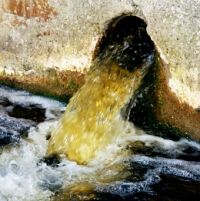

English shellfish could be contaminated with sewage as untreated human waste was dumped 29,000 times in the water where they are cultivated by water companies last year.
Sewage was dumped into waters containing shellfish for 207,013 hours in one year, with the worst offenders being South West, Southern Water and Anglian Water.
There are fears that this could be happening this year, with some of England's best-known fishing areas being spoiled by sewage, raising fears that the shellfish could be contaminated.
The longest sewage dump into shellfish water last year took place at Morecambe Bay by United Utilities, lasting 5,000 hours. However, Environment Agency data shows that the sewage monitor worked only 15% of the time, which means the figure could be much higher.
In Sussex, Southern Water dumped sewage into Chichester Harbour for 4,996 hours in just one overflow.
The shellfish industry has recently been hit by sewage pollution, with the Whitstable Oyster Festival being ruined by sewage fears in 2021, afters diners fell ill with suspected poisoning.
Director of Whistable Oyster Company, James Green, commented on the effect that sewage dumping had on the industry: "After the first spill event at the end of June, the next three months we had close to zero sales as each time we tried to open, there was another spill event and associated cases of norovirus".
"How is Southern Water going to compensate both the industry and the people that will lose their jobs if their use of combined sewer overflows continues on a regular basis due to a lack of infrastructure investment?".
Southern Water argued that the sources of bacteria getting into the sea were "many and varied" and not solely down to its discharges.
Water UK, who represents water firms, said: "Water companies agree there is an urgent need for action to tackle the harm caused to the environment by spills from storm overflows and wastewater treatment works. They are investing over £3bn to improve overflows as part of a wider national programme to improve the environment between 2020 and 2025".
"However, companies want to go further, faster and are pushing to be able to spend more, and for processes to be streamlined so that investment can be quickly targeted where it is needed most. Any new investment must be combined with action from Government on wet wipes and urban creep that are increasingly triggering spills".
"Water companies can’t do this alone which is why we’re also calling for Government, regulators, water companies, agriculture, and other sectors to come together as soon as possible to deliver a comprehensive national plan to bring about the transformation in our rivers and waterways we all want to see".
For more information on this subject, see: